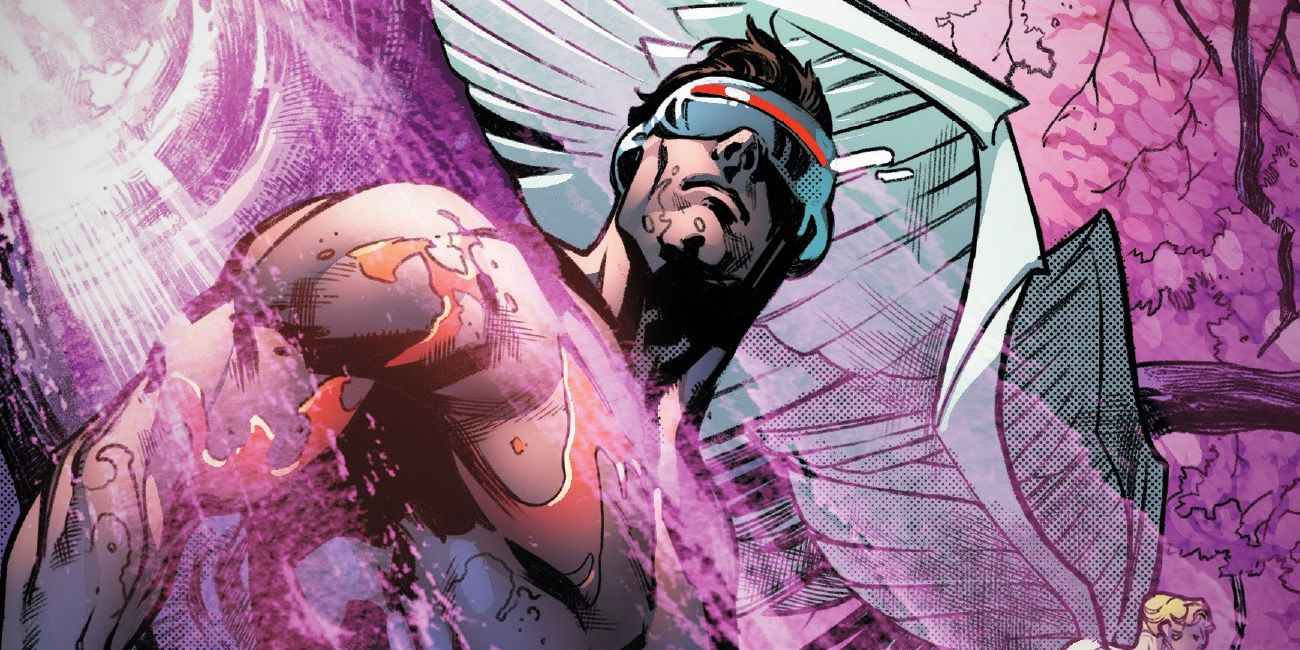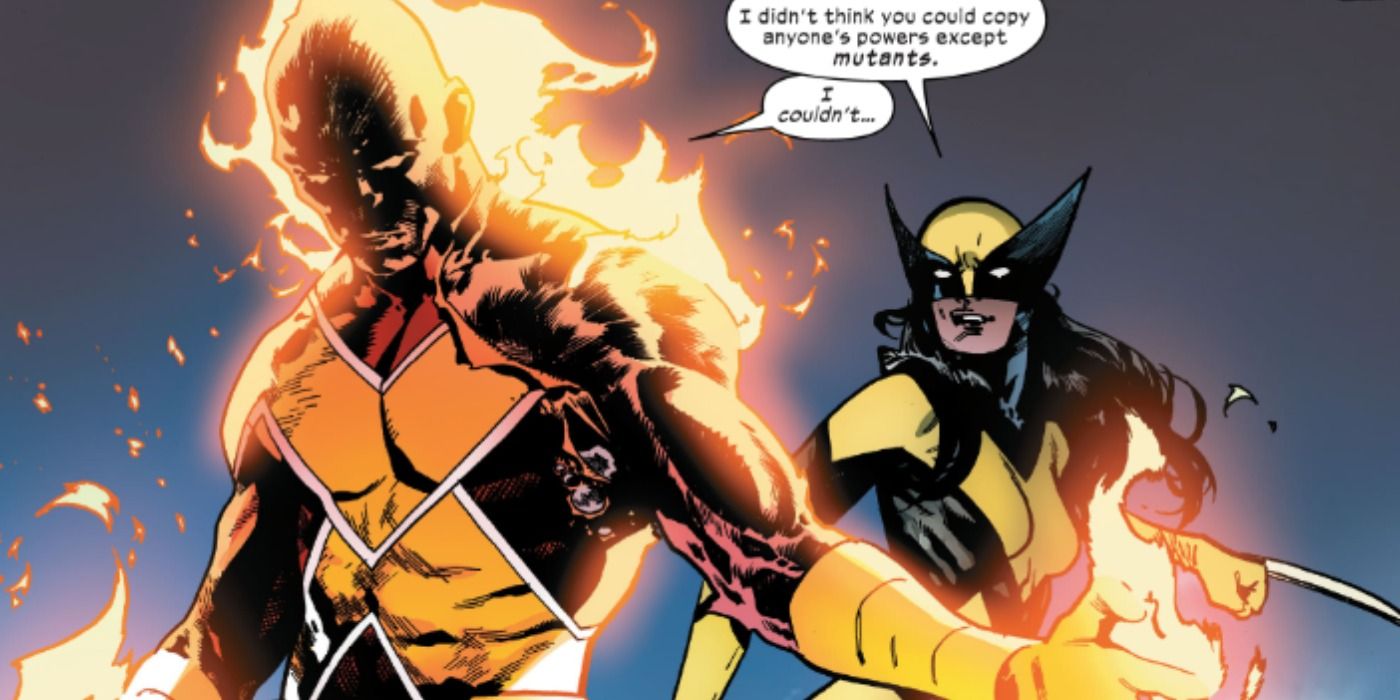
Warning: this article contains spoilers for X-Men #18
Not only are Marvel Comics’ X-Men effectively immortal, but now their powers are growing stronger with every resurrection. The Age of Krakoa has launched mutantkind on trajectory towards unprecedented prosperity and influence on Earth and in the greater cosmos. No longer on the endangered species list, mutants have established a nation primed to one day emerge victorious as the greatest civilization on the planet. This does not mean that the X-Men are without weakness and can disregard the existence of potential threats to their homeland.
This month’s X-Men #18, written by the “Head of X” himself Jonathan Hickman and illustrated by Mahmud Asrar and Sunny Gho, takes readers inside the temporally-accelerated world known as The Vault. Nestled among the dense rainforest canopies of South America, the crashed space ship—through which the Vault is entered—is a jarring sight. After discovering its existence and encountering one of its powerful escapees—one of the so-called Children of the Vault—much earlier in the series, the Quiet Council sent in their most resilient mutants to investigate. The members of the team include: Darwin, Synch, and Laura Kinney, aka Wolverine. Their mission is to assess the threat posed by the beings which dwell inside. Surprisingly, it isn’t the mystery of the Vault that’s the most tantalizing, but the revelation that the mutant technology responsible for Krakoa’s rebirth cycle has unforeseen side-effects.
For Synch, otherwise known as Everett Thomas, the changes are especially pronounced. His name derives from his knack for generating an energy-absorbing field which allows him to mimic, or “synch”, the powers of nearby mutants. Since his resurrection, not only have his mutant abilities increased by a measure of four percent in power, but the scope of his incredible Synchronistic field has also broadened. Where once he was only able to copy mutant powers, he now can mimic the abilities of the Children of the Vault. For context, the Children of the Vault are neither mutants nor human beings, but rather descendants of humanity who have been enhanced after thousands of years of evolution and technological advancement. Moreover, Synch’s abilities no longer goes dormant when he’s not surrounded by super-beings, instead theyremain continuously on the lookout for other powers. But how is this possible?

In classic Hickman fashion, this issue contains an all text expository page dedicated to a medical report written by Krakoa’s resident mutant surgeon, Dr. Cecilia Reyes. In it, Reyes goes on to describe how what she at first assumed to be a possible secondary mutation, she now understands to be an unintended byproduct of the resurrection protocols. When a mutant dies, a new body—a husk—is grown to replace the old one, which is then implanted with the deceased’s backed up mind. This new body is, as Reyes describes “a blank slate”, and has never been “mutant active”, meaning it has never expressed its special powers before. However, the mind being put into the shell comes with years, sometimes a lifetime, of experience with its mutant abilities. She therefore surmises that the increase in power and scope is due to the singular confluence of a powerful mutant mind activating their abilities within a never-empowered husk.
It’s still too early to tell whether this new power-enhancing alchemy is a blessing or a curse for mutantkind. Considering how many and how often X-Men—or members of other X-teams—are killed in action and resurrected, is it possible that fans are on the verge of witnessing mutants ascend to even greater evolutionary heights? With the technology behind the Children of the Vault in play, there’s no telling exactly what Marvel Comics and Jonathan Hickman have in store for readers.
from ScreenRant - Feed https://ift.tt/3kK6lPi

0 Comments